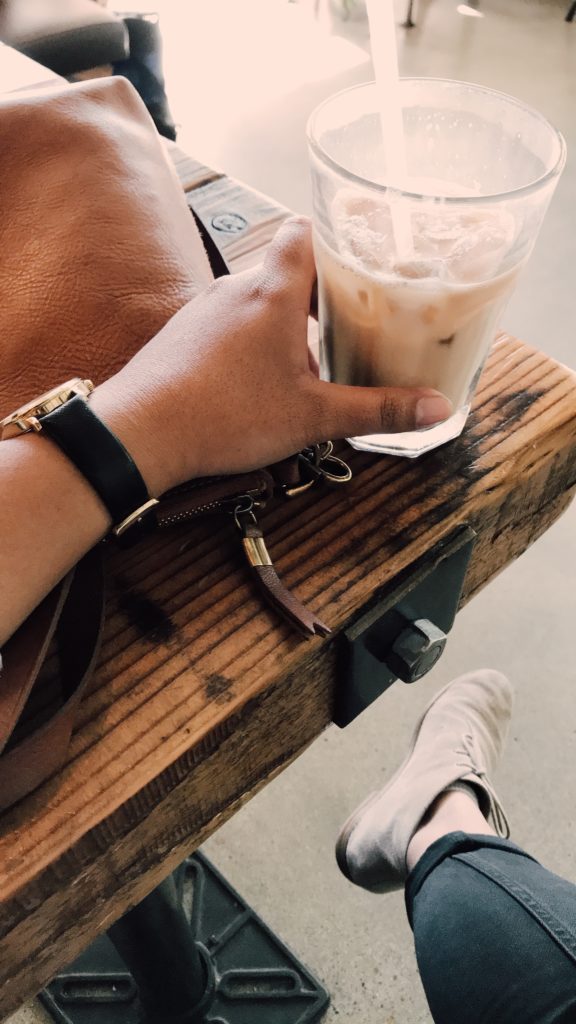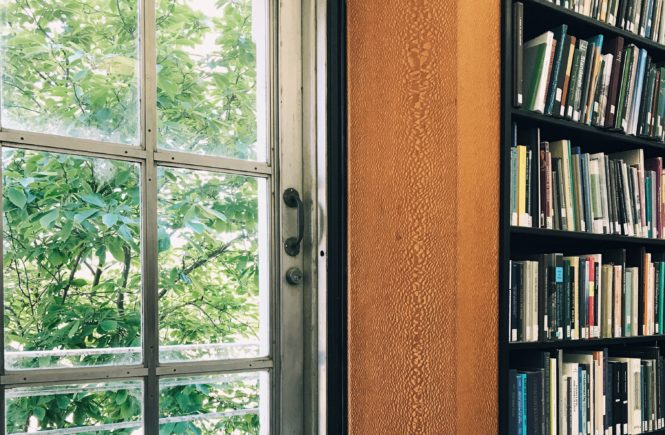an honest talk about mental health
Growing up in a culture that doesn’t prioritize mental health as an integral part of overall health, I never knew how to acknowledge my feelings, let alone process them. According to the American Journal of Public Health, Asian-Americans have an 18% lifetime rate or a 9% annual rate of having psychological disorders. However, they’re also three times less likely to seek mental health services. This statistic does not surprise me. Only through therapy did I come to realize the mental health struggles I faced not only recently, but throughout my childhood and adolescence. It was only when I reached a mental breaking point did realize I needed to seek help.
I have always been an emotional person and grew up having others tell me to “stiffen up.” Due to this, I have learned to suppress my feelings rather than acknowledge them. Because I was never taught how to process why I felt a certain way and what that feeling means, years and years of emotions stacked on top of one another inside of me. Stress from school, pressure from family, societal expectations from my peers, among other things, circled around me like a haze. I always thought that if I studied more, worked harder, did more, that it would all sort itself out. Everyone else around me seemed to have everything together, so why couldn’t I? Something I have learned recently in going to therapy is that if you don’t acknowledge your feelings they settle inside of you, taking up space emotionally and physically. It is exhausting to harbor so many years of mental fatigue within you.
I grew up with a wonderful childhood, but in a culture where checking up on someone’s mental health was taboo, I am now an adult that is unequipped to navigate these newfound hurdles. I don’t blame my parents for raising me the way that they did. After all, they did what they thought was best based on how they were raised. But I think it’s important to highlight the problematic nature of ignoring toxic habits. At family gatherings, it wasn’t uncommon to be bombarded with questions from relatives, such as how my love life was going, what my plans academically/professionally were, and how my choices were going to affect the entire family as if it really mattered how my choices were going to affect anyone other than myself. I grew up believing that putting my needs and feelings first was selfish; that I had to consider everyone else’s feelings and how my choices affected them before I considered how they affected me. Putting yourself first is not selfish! It is actually one of the most selfless things one can do. Now, I’m not saying you should disregard other people’s feelings or how you impact other’s lives. What I am saying is that you matter, how you feel matters, and that should be the priority before you worry about everyone else.
Something my therapist told me that I find so helpful is the concept of empty cups. You are the cup. You can’t pour out of an empty cup. I used to put myself on the bottom of my “to-do” list, push my needs aside and focus on everyone and everything else. This led to emotional fatigue and burnout. My body and mind were literally telling me that they couldn’t go on any longer in this way. It wasn’t sustainable. I wasn’t taking the time to listen to myself and what I needed. I was trying so hard to keep pouring into everyone else’s cups but never realizing my cup was empty. And what does that mean? I wasn’t giving people my best; I wasn’t being a quality friend, student, coworker, etc. Why? Because I wasn’t taking care of myself. You can’t invest in others properly if you don’t invest in yourself first. I was pushing myself past my limits because I compared myself to everyone else and how they were functioning. There are people who can do so much more, who are doing so much more, and I felt guilty for not measuring up to their abilities. But I’m not them! And that’s okay! And my limits are different! And that’s also okay! It’s still not easy. I have a whole lifetime of establishing my value and self-worth through success, of being a “yes” person, a people pleaser. I have a very “black and white” and “all or nothing” mindset. If I’m not working toward my end goal then I’m ultimately a failure. Things either have to be exactly as I imagine it or it’s not worth it. And this is toxic thinking because nothing in life is defined by these polarities. There is room for some middle ground, some grey area. I am uncomfortable in this middle grey area. I have no idea how to exist in it. But I’m learning. Here’s a list of things I’ve been learning and practicing through therapy:
- It is okay to say “No.”
- It is healthy to establish boundaries. You’re not rude, mean, or selfish for doing this. If you’re uncomfortable, voice that. If you don’t want to do something, voice that. Listen to yourself and what you’re comfortable with. You deserve to acknowledge and honor what you are comfortable with, no ifs, ands, or buts.
- Guilt is a feeling that is self-inflicted. You do not have to feel guilty about something you have no control over or no responsibility in. (But also remember that guilt is usually associated with caring. If you feel guilty you probably care a lot about something/someone.)
- Healing is not linear. It’s messy, with twists, turns, and detours. And it usually doesn’t feel good. You have to face a lot of uncomfortable things that you’ve probably been avoiding. But face them. Tackle them head-on. It will feel better once you do, but it’ll feel like absolute shit while you’re doing it.
- Mental health is not an excuse. Yes, it is hard. Yes, sometimes you want to crawl into a hole and never come out. But mental health is not an excuse to treat people poorly. Communicate with your loved ones, friends, and peers. (This goes back to establishing boundaries.) If you made plans with a friend and suddenly just don’t feel up to it, tell them! Let’s normalize talking about how we feel. Tell your friend you need some time and space to process.
- Nobody can help you if you don’t reach out for help. And it is okay and healthy to ask for help. You are not weak, less successful, or incompetent for asking for help. We all need assistance sometimes. But nobody can help you if you do not vocalize what your struggles are.
As someone who grew up not knowing that mental health is just as important as our physical health, I will be the first to admit the process of acknowledging my feelings and struggles is not easy. It is so hard to be vulnerable because that opens you up to judgement. And judgement hurts. But I want to live in a world were people are kind and understanding. And if I have children someday, I want them to know that their feelings are valid and healthy. In order to do that, I have to acknowledge how I process my feelings and make efforts and changes towards that goal. So let’s normalize talking about our feelings, especially in POC/AAPI cultures. You may have grown up in a culture where minimizing your mental health was normal. But it doesn’t have to be. And we can change that and it starts with ourselves.
On Being Sensitive, Weakness, & “Feeling Too Much” – Reality of being a Highly Sensitive Person
To him
a touch is a blow,
a sound is a noise,
a misfortune is a tragedy,
a joy is an ecstasy,
a friend is a lover,
a lover is a god,
and failure is death.
– Pearl Buck
There is a stigma that people who are emotional, highly sensitive, or “feel too much” are inherently weak. I would argue that these people are among the strongest individuals to exist. In fact, approximately 20% of the population is highly sensitive.
As an emotional empath and highly sensitive person (HSP) myself, I have struggled with the criticism of being overly emotional my entire life. Growing up, my teachers told me I needed to engage more and stop letting little nuances affect me. Now as an adult, I often find myself sobbing at the slightest bit of confrontation, and most of all, I have and continue to struggle with not making other people’s problems my problems. I was sure that others had to feel everything as deeply as I do, but I was only trying to comfort myself from the reality that not everyone is similar, and perhaps I am part of the minority.
I feel everything. It isn’t something that I choose or want for myself. I can never “turn it off” as if I have control over it. Emotions overcome me like tsunamis; everything is calm, and the next minute I’m harboring my feelings, other people’s feelings, and the world around me as I take it all in.
However, it was only recently that I made this discovery about myself and I can say that it is both a blessing and a curse.
Reflecting on my childhood and recalling specific moments that have strongly impacted me, it is now clear that I have exhibited signs of being an empath and HSP from an early age.
According to the Highly Sensitive Person Foundation, some of the characteristics of an HSP are:
- Being easily overwhelmed by stimuli, such as lights, scents, and rough fabrics
- Becoming anxious when having a lot to do in a little amount of time
- Avoiding violence in the media, such as movies, TV shows, and the news
- Needing to retreat to a quiet, dark, and/or private place during particularly busy days
- Prioritize the avoidance of distressing or overwhelming situations
- Notice and/or enjoy subtle or delicate scents, sounds, or art
- Having a rich and vibrant inner life
- As a child, was often viewed as sensitive or shy by parents, teachers, or other adults
Now, no list is all-inclusive, but when reading the above points for the first time, I couldn’t help but nod furiously and think “Yes, I can relate to all of them!” For the first time in my life, I finally felt understood.
Growing up is already a confusing and challenging experience, but on top of it all, I had to deal with my excess of emotions while trying to figure out where my place in this world was. I would be lying if I said I currently have it all sorted out and know where I belong. What I have realized, however, is that, like most things in life, every aspect that makes being an HSP difficult also comes with some wonderful rewards. In my particular case, the positives overpower the negatives and make it all worth it.
One of the more prominent aspects of being an HSP is having strong responses toward stimuli; as a result, crying and tears aren’t unusual. A common example is that I often find myself crying at dog commercials regardless if they’re meant to be sad, and the mood resulting from it follows me throughout the day. On the other hand in feeling negative things deeply, I also feel positive things deeply. The simple or trivial pleasures of life regularly bring me joy. Stepping on a crunchy autumn leaf, listening to my favorite song, or having someone smile at me are acts that can instantly make my day.
“You are not weak just because your heart feels so heavy.”
–Andrea Gibson // “The Nutritionist”
HSPs are often known to be well-versed and valuable when it comes to advice giving. Lending a shoulder to cry on or an ear to listen repeatedly make them the preferred person in friend groups or social circles to help deal with other’s conflicts. This is due to the highly empathetic and compassionate nature HSPs have. In addition to being wonderful listeners and attuned in guidance, HSPs tend to be naturally giving, due to their ability to pick up on other’s emotions and see things from their point of view.
I know these things to be true for me personally. Within in my social circle, I am often deemed “the mom” and am the first person my peers consult when seeking advice. It’s a wonderful thing to have my input valued, but it does become emotionally tiring to constantly have my attention demanded. I’ve even been in situations where complete strangers have found my demeanor comforting and have “dumped” their problems on me before leaving never to be seen again. And of course, I find it extremely difficult to say no when asked to lend a helping hand to those who ask.
This has been a source of guilt for me throughout the years. I know that I have to prioritize my own health and well-being, but the thought of denying a friend or loved-one comfort in a time of need makes my heart ache. But here’s what I’ve realized: you can still provide support to those you love without compromising your mental health. I used to think that in order to be there for someone, I had to sacrifice all of my emotions until I felt drained; filling them up with all I had until there was nothing left for myself.
It is common for empaths and HSPs to be exploited by others around them. To others, our caring nature is inviting, and our desire to please others makes us perfect targets for this emotional manipulation.
“I care. I care a lot. It’s kind of my thing.”
–Leslie Knope // “Parks and Recreation”
In a society where outgoing, highly productive individuals are viewed as the only type of people who can be successful, it comes as no surprise that HSPs (and introverts alike) often feel incompetent or useless in response to their resilient peers, which makes it difficult for them to fit into society. While being outgoing and highly productive are great qualities to have when entering the workforce, it is important to note that HSPs also have their strengths.
According to Elaine N. Aron, Ph.D, in her book The Highly Sensitive Person, she notes that HSPs are needed in the top tiers of an organization, as well as society as a whole, in order to help prevent the abuse of power and force, while also providing their intuition in decision making, rather than relying on impulse alone.
“Sensitive people suffer more, but they love more and dream more.”
– Agusto Cury
Our retrospective and quiet nature have some benefits. While everyone else is so go, go, go with their lives, HSPs, due to their need to recharge and process what happens around them, have more opportunities to express compassion and leave their heads up in the clouds.
While being a highly sensitive person in a world that prioritizes the energetic and aggressively enterprising can be a tiresome and daunting experience, it is important to remember that everyone has a role to fulfill in this world. Whether you are a fellow HSP (hi!) or fall somewhere else on the sensitivity spectrum, we all are important, which is the most influential point I can make in this post.
*Author’s note:
Writing this piece has been such a challenge for me personally; this “passion-piece” as I like to call it, has been a work in progress for over a year. I wanted the information I shared to be accurate and reliable, while also maintaining a sense of tenderness without losing credibility. As a highly sensitive person, it is difficult for me to share my feelings, but I knew that it would help me (and hopefully others) grow as an individual, as well as gain confidence in being deemed “weak” throughout my life. In researching this article I have learned so much about being sensitive and how I function in this world. Most importantly I have realized that being overly sensitive is OK, and at times even beneficial. Thank you for taking the time to read this personal piece of my life!
Book Review: Turtles All the Way Down
 Turtles All the Way Down by John Green
Turtles All the Way Down by John Green
My rating: 5 of 5 stars
I’ve been in a bit of a rut with young-adult fiction recently & haven’t found the genre as satisfying to read, but this book did change my mind. (Maybe it’s because I’ve been reading 18-19th century British Literature for six months straight???)
With a topic as sensitive and broad as mental health, I was apprehensive to see how this book would tackle such a subject. But John Green created the character Ava, as well as the sphere of her mind, with such care that I found myself benefiting from the realization Ava was making in her mental health journey. There’s a line where she says “I would never slay the dragon, because the dragon was also me.” and it makes sense.
Most importantly, I am so thankful for how Green treated his characters and the topics in this book. He does not sugar-coat, he does not “dumb-it-down.” Aza’s problems are real, her struggles are difficult, and the journey she goes on is relentless. Just because she is a young adult, her problems are not presented as “young” they are presented as real, but more so, they are presented as something Aza can deal with, that it isn’t a hopeless battle.
Friday Café Date for One


There’s nothing quite as satisfying as spending an afternoon in a quaint café having an iced chai.
(Taken at Insight Coffee Roasters, Freemont Location, Downtown Sacramento)
What I’m Wearing:
Book Review: Charlie & The Chocolate Factory
 Charlie and the Chocolate Factory by Roald Dahl
Charlie and the Chocolate Factory by Roald Dahl
My rating: 4 of 5 stars
I enjoyed this book! I was assigned to read Charlie And The Chocolate Factory for my Children’s Literature class & was thrilled, considering that I love both movie adaptations so much & haven’t read it as a child.
Willy Wonka’s character had me laughing out loud at his snarky remarks, I enjoyed Charlie & Grandpa Joe as protagonists, & the songs the Oompa Loompas sang were full of morals that, even as an adult, took me a second to take in.
Roald Dahl is a fantastic children’s writer, full of whimsy & enchantment. I hope to read more of his books this year!
What’s in My Name?
I was named after my parents. Yes, my parents thought it would be clever to name their last offspring, a combination of their single halves to create a whole, after themselves. Edinette. The first half comes from my father, Edgar, Eddie, Ed, he goes by so many names. The latter from my mother Nenita. Growing up, it was never a question whose child I was, for it was literally in my name. What’s in my name? From the first half of my father, I got his tenacity and strong will; from my mother’s latter half, her kind heart and Seussian imagination, though she has not read much of Dr. Seuss. My father is stubborn, but his name did not give me that. My mother is overbearing, but her name made me compassionate instead. My name has horrible dance moves, never able to stay on beat as it rolls off your tongue. It always wants to go by its own tempo and march to its own drum. Sometimes it wants to be long, Ee-din-et. Sometimes it wants to be snappy, Ed-net. Usually, it wants to skip and hop, Ed-in-et, which is how I prefer it. When meeting people for the first time, long Edinette and snappy Edinette make their appearance, though skip and hop Edinette does not show up until much later. I understand, I am like that, too, a little shy to reveal myself. It is intimidating to hear my name and it not be my name. It rolls off someone’s tongue but it is not familiar, it is not a name I would respond to. Instead, long Edinette and snappy Edinette come out front and center, entertaining an audience with a façade. My name has no meaning; it does not mean strength or hope. It does not mean innocence or grace. Its meaning is that I may assign significance to it however I choose. Edinette means wonder and whimsy, as I am in constant pursuit of something fascinating. If it were a color it would be aqua; blue but not sad-blue, more ocean-blue, which is ironic because I have a fear of drowning. Edinette is that still period between slumber and consciousness where it feels like you are floating in bed. My name would be curled up on the couch with a cup of tea on a beautiful day because although my name seems bold and daring, it prefers to live simply. But if I could have an alter ego, I would name myself Lulu. Not short for Louise or Lourdes. Lulu. Who is bold and French, strong like coffee.

What I’m Wearing:
- G.H. Bass & Co. Noelle Loafers (Thrifted) ✿ Exact
- Hollister Stretch Low-Rise Jean Legging
Book Review: A Poetry Handbook
 A Poetry Handbook by Mary Oliver
A Poetry Handbook by Mary Oliver
My rating: 4 of 5 stars
“For poems are not words, after all, but fires for the cold, ropes let down to the lost, something as necessary as bread in the pockets of the hungry. Yes, indeed.”
Mary Oliver’s poems have been a longtime staple, and her insight and wisdom toward the craft have been so useful in my own journey in writing poetry.
This book is so simple, yet so full of useful tidbits, and I am so glad I got to read it as part of my undergrad curriculum.

 (@ldnwandering)
(@ldnwandering)
 _____________________ I also realized after the fact that it’s Saturday & I’m listening to Easy which refers to Sunday but I can’t be bothered to wait a day to post.
_____________________ I also realized after the fact that it’s Saturday & I’m listening to Easy which refers to Sunday but I can’t be bothered to wait a day to post.  #mornings #coffee #sunshine
#mornings #coffee #sunshine